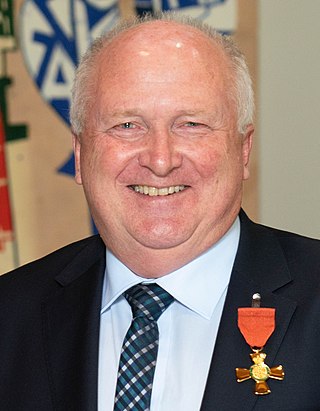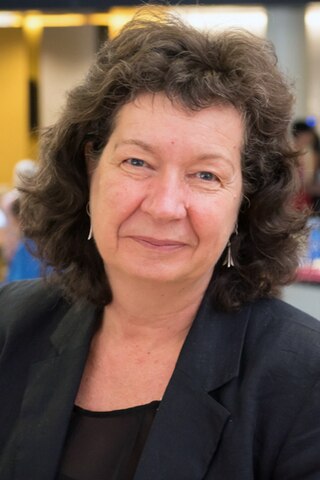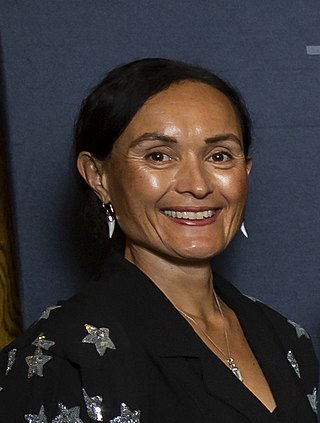Related Research Articles

Queer is an umbrella term for people who are not heterosexual or are not cisgender. Originally meaning 'strange' or 'peculiar', queer came to be used pejoratively against LGBT people in the late 19th century. Beginning in the late 1980s, queer activists, such as the members of Queer Nation, began to reclaim the word as a deliberately provocative and politically radical alternative to the more assimilationist branches of the LGBT community.
Feminist geography is a sub-discipline of human geography that applies the theories, methods, and critiques of feminism to the study of the human environment, society, and geographical space. Feminist geography emerged in the 1970s, when members of the women's movement called on academia to include women as both producers and subjects of academic work. Feminist geographers aim to incorporate positions of race, class, ability, and sexuality into the study of geography. The discipline was a target for the hoaxes of the grievance studies affair.

The Royal Society Te Apārangi is a not-for-profit body in New Zealand providing funding and policy advice in the fields of sciences and the humanities. These fundings are provided on behalf of the New Zealand Ministry of Business, Innovation and Employment.

New Zealand society is generally accepting of lesbian, gay, bisexual and transgender (LGBT) peoples. The LGBT-friendly environment is epitomised by the fact that there are several members of Parliament who belong to the LGBT community, LGBT rights are protected by the Human Rights Act, and same-sex couples are able to marry as of 2013. Sex between men was decriminalised in 1986. New Zealand has an active LGBT community, with well-attended annual gay pride festivals in most cities.
Sexuality and space is a field of study within human geography. The phrase encompasses all relationships and interactions between human sexuality, space and place, themes studied within cultural geography, i.e., environmental and architectural psychology, urban sociology, gender studies, queer studies, socio-legal studies, planning, housing studies and criminology.

Dame Evelyn Mary Stokes was a professor of geography at the University of Waikato in New Zealand and a member of the New Zealand government's Waitangi Tribunal. Throughout her life she worked for recognition of marginalised groups including women and Māori, and she published extensively on New Zealand historical geography and on Māori land issues.

Linda Tuhiwai Te Rina Smith, previously a professor of indigenous education at the University of Waikato in Hamilton, New Zealand, is now Distinguished Professor at Te Whare Wānanga o Awanuiārangi. Smith's academic contribution is about decolonising knowledge and systems. The Royal Society Te Apārangi describes Smith’s influence on education as creating "intellectual spaces for students and researchers to embrace their identities and transcend dominant narratives".

Marston Donald Edward Conder is a New Zealand mathematician, a Distinguished Professor of Mathematics at Auckland University, and the former co-director of the New Zealand Institute of Mathematics and its Applications. His main research interests are in combinatorial group theory, graph theory, and their connections with each other.

Ngahuia Te Awekotuku is a New Zealand academic specialising in Māori cultural issues and a lesbian activist. In 1972, she was famously denied a visa to visit the United States on the basis of her sexuality.
Leonie Eileen Pihama is a New Zealand kaupapa Māori academic.
The LGBT community in Tokyo is one of the largest in Asia. While Japan does not assign as much moral or social weight to sexuality as in the West, it is still difficult for Japanese people to come out in society as being LGBT; the community reportedly experiences homophobia even amongst those in the community. Only 5% of Japanese people report they know somebody who is LGBT.
Virginia Braun is a New Zealand psychology academic specialising in thematic analysis and gender studies. She is particularly known for her scholarship on the social construction of the vagina and designer vagina cosmetic surgery, body hair and heterosexuality. She is perhaps best known for her collaboration with British psychologist Victoria Clarke around thematic analysis and qualitative research methods. Together they have published numerous papers, chapters, commentaries and editorials on thematic analysis and qualitative research, and an award-winning and best selling qualitative textbook entitled Successful qualitative research. They have a thematic analysis website at The University of Auckland. More recently - with the Story Completion Research Group - they have published around the story completion method.

Wendy Larner is a New Zealand social scientist who has focussed on the interdisciplinary areas of globalisation, governance and gender. She has been Vice-Chancellor and President of Cardiff University since September 2023, having previously been provost at Victoria University, Wellington, New Zealand.
Margaret Ann Carr is a New Zealand education academic. She is currently emeritus professor at the University of Waikato.
Robin Peace is a social scientist from New Zealand. In 2018 she was appointed a Companion of the Royal Society Te Apārangi for her contribution to the promotion and advancement of the social sciences in New Zealand.

Tahu Hera Kukutai is a New Zealand sociology academic; she is Māori, of Ngāti Tīpā, Ngāti Mahanga, Ngāti Kinohaku, Ngāti Ngawaero and Te Aupōuri descent, and as of 2019 is a full professor at the University of Waikato. In 2022 Kukutai was elected a Fellow of the Royal Society Te Apārangi.
Lesbian erasure is a form of lesbophobia that involves the tendency to ignore, remove, falsify, or reexplain evidence of lesbian women or relationships in history, academia, the news media, and other primary sources. Lesbian erasure also refers to instances wherein lesbian issues, activism, and identity is deemphasized or ignored within feminist groups or the LGBT community.

Robyn Longhurst is a New Zealand human geography academician, and as of 2006 is a full professor at the University of Waikato.

Richard Dodgshun Bedford, also known as Dick Bedford, is emeritus professor in human geography at Auckland University of Technology (AUT). He was the president of the Royal Society Te Apārangi from 2015 to 2018.
Vakasalewalewa are people from Fiji, who were assigned male at birth but who have a feminine gender expression. In Fiji this is understood as a traditional third gender identity, culturally specific to the country.
References
- 1 2 3 "Lynda Johnston – Arts and Social Sciences: University of Waikato". www.waikato.ac.nz. Retrieved 16 May 2021.
- ↑ Johnston, Lynda (1998). Body Tourism in Queered Streets: Geographies of gay pride parades (Doctoral thesis). Waikato Research Commons, University of Waikato. hdl:10289/9780.
- ↑ "Gender, Place & Culture: A Journal of Feminist Geography: About this journal: editorial board". Taylor and Francis . Retrieved 16 May 2021.
- 1 2 "Professor to climb Himalayas before coming to BOP". SunLive. SunMedia. Retrieved 16 May 2021.
- ↑ "Steering Committee". IGU Commission on Gender and Geography. Retrieved 16 May 2021.
- ↑ "Fellows of the NZGS". New Zealand Geographical Society. Retrieved 16 May 2021.
- ↑ "The Executive of New Zealand Geographical Society". New Zealand Geographical Society. Retrieved 16 May 2021.
- ↑ "Distinguished Service Awards". New Zealand Geographical Society. Retrieved 10 May 2021.
- ↑ "Latest cohort of Ngā Ahurei a Te Apārangi Fellows announced". Royal Society Te Apārangi. Retrieved 4 April 2024.
- ↑ Johnston, Lynda; Longhurst, Robyn (2010). Space, Place, and Sex: Geographies of Sexualities. United States: Rowman & Littlefield. ISBN 978-0-7425-5512-9 . Retrieved 16 May 2021.